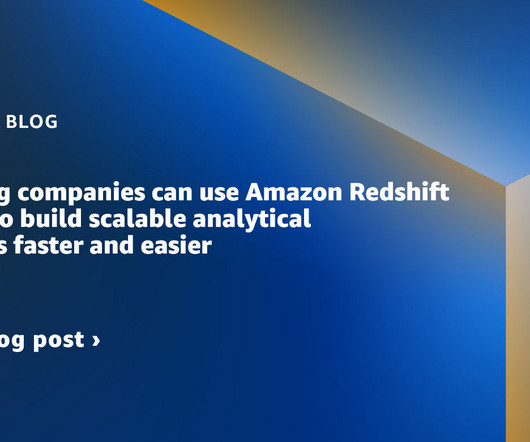How gaming companies can use Amazon Redshift Serverless to build scalable analytical applications faster and easier
AWS Big Data
MARCH 7, 2023
Analytics reference architecture for gaming organizations In this section, we discuss how gaming organizations can use a data hub architecture to address the analytical needs of an enterprise, which requires the same data at multiple levels of granularity and different formats, and is standardized for faster consumption.














Let's personalize your content